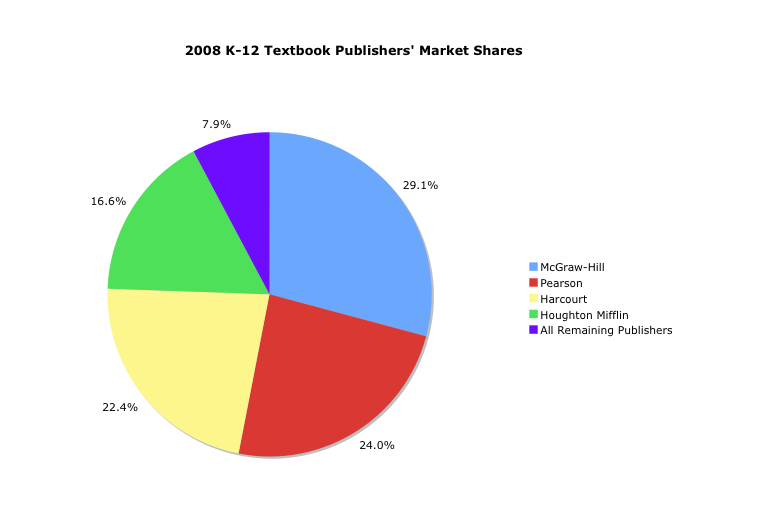IP Profile of Biggest for-profit companies in EM-K12: Difference between revisions
Jump to navigation
Jump to search
No edit summary |
No edit summary |
||
| (5 intermediate revisions by the same user not shown) | |||
| Line 1: | Line 1: | ||
==Research Questions== | ==Research Questions== | ||
*How is the market distributed? | * What are the 10 biggest for-profit companies in this field? | ||
*Where are they located? Are there any incentives for specific locations? | * How is the market distributed? | ||
*Correlate them with their main outputs | * Where are they located? Are there any incentives for specific locations? | ||
*Understand and identify cases where these companies are “experimenting” or “adopting” commons-based approaches | * Correlate them with their main outputs (Data, Narratives, Tools) | ||
*Identify these cases and treat them as entities that will also be placed in our mapping device (the quadrants) | * Understand and identify cases where these companies are “experimenting” or “adopting” commons-based approaches | ||
*Identify what companies are the “Microsofts” of the field and what companies are the “IBMs” of the field | * Identify these cases and treat them as entities that will also be placed in our mapping device (the quadrants) | ||
* Identify what companies are the “Microsofts” of the field and what companies are the “IBMs” of the field | |||
==Market profile== | ==Market profile== | ||
The textbook | The following chart, using 2008 data from Simba Information, illustrates the consolidation of the traditional textbook market at the K-12 level, where just four publishers control over 90% of the market: | ||
[[Image:K-12TextbookPublisherPieGraph.png|center]] | |||
The four big publishing companies have absorbed dozens of independent textbook companies, through mergers and acquisitions. Many have become brand names inside large companies. | |||
| Line 16: | Line 21: | ||
#:'''[[Harcourt Education]]''' | #:'''[[Harcourt Education]]''' | ||
#'''[[Reed Elsevier]]''' | #'''[[Reed Elsevier]]''' | ||
= Navigation = | = Navigation = | ||
[[Bibliography for Item | [[Bibliography for Item 6 in EM]]<br> | ||
Back to [[The K-12 Level]]<br> | Back to [[The K-12 Level]]<br> | ||
Back to [[Educational Materials]] | Back to [[Educational Materials]] | ||
[[Category:Educational Materials]] | [[Category:Educational Materials]] | ||
Latest revision as of 16:20, 19 June 2009
Research Questions
- What are the 10 biggest for-profit companies in this field?
- How is the market distributed?
- Where are they located? Are there any incentives for specific locations?
- Correlate them with their main outputs (Data, Narratives, Tools)
- Understand and identify cases where these companies are “experimenting” or “adopting” commons-based approaches
- Identify these cases and treat them as entities that will also be placed in our mapping device (the quadrants)
- Identify what companies are the “Microsofts” of the field and what companies are the “IBMs” of the field
Market profile
The following chart, using 2008 data from Simba Information, illustrates the consolidation of the traditional textbook market at the K-12 level, where just four publishers control over 90% of the market:
The four big publishing companies have absorbed dozens of independent textbook companies, through mergers and acquisitions. Many have become brand names inside large companies.
Bibliography for Item 6 in EM
Back to The K-12 Level
Back to Educational Materials
